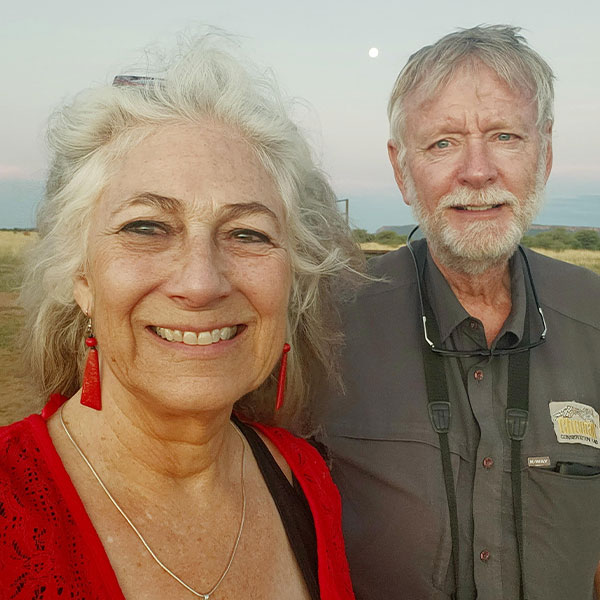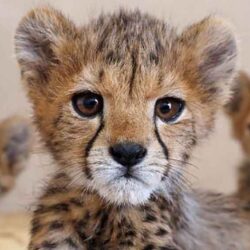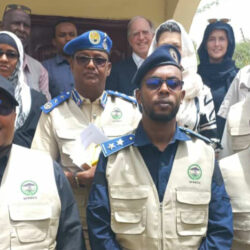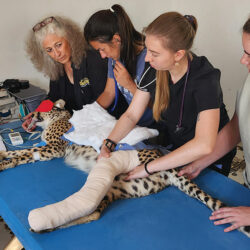CCF’s Statement on Cheetahs Confiscated from The Illegal Pet Trade
-

- by Dr. Laurie Marker August 21, 2020
CCF has long worked to prevent cheetahs from being taken from the wild across the species range. From adult animals in southern Africa to days old cubs in Africa’s northern and eastern regions, the cheetah faces many threats due to human interference. Habitat loss, human-wildlife conflict, and the illegal pet trade are the three main causes for the endangerment of cheetah populations in the wild.
When adult animals become trapped, if they are not grievously wounded or permanently disabled, CCF’s veterinary team works to return them to the wild as soon as possible. Our goal is to enact as little interference in their lives as we can. When cheetah cubs are confiscated after being taken from the wild for the illegal pet trade, we take on an entirely different responsibility.
Upon arrival into our care, the initial prognosis of these cubs is largely dependent on their age, the length of time with animal traffickers and the quality of care they received during that time.
CCF has been a part of global research efforts in cheetah biology and conservation since our founding 30 years ago. My first-hand experience in providing care for the cheetah extends well beyond that. In many cases, despite our expertise in cheetah care, these young cubs are so ill, malnourished, and covered with parasites that they often perish within the first 72 hours of intensive care. This is a critical time frame for our veterinarians in which intensive care efforts are most needed and cubs are under constant observation. Our veterinary team has experienced many sleepless nights of delivering care to no avail. In spite of the delicate conditions of confiscated cubs, we have been able to achieve a survival rate of 87% in getting cubs past their first 72 hours of critical care (57 out of 68 cubs survived past 72 hours). Their continued survival beyond this initial critical phase is not a guarantee. Long-term survival depends on many factors and there are many long term health conditions that are developed when young animals, like illegally trafficked cubs, are malnourished and traumatized within their formative first few months of life. These conditions can be debilitating and can have an enormous impact on their overall well-being and most often means that even if they survive into adulthood they can never be returned to the wild.
As we continue to build our presence within one of the most heavily trafficked routes. We have had the benefit of an international team of veterinary experts. We have developed protocols and built new facilities that enable us to isolate cheetahs upon arrival. We continue to work tirelessly to give cheetahs that are confiscated the best chance of survival. Most importantly, we work to stop cubs from being taken from the wild in the first place. Through education, international policy changes and better enforcement we can end the illegal trade of cheetahs in order to conserve the wild cheetah for future generations.
Related Reading
-
June 12, 2024
Continuation Assigned Task is National Obligation -
March 8, 2023
Support the Cheetah Rescue and Conservation Centre




